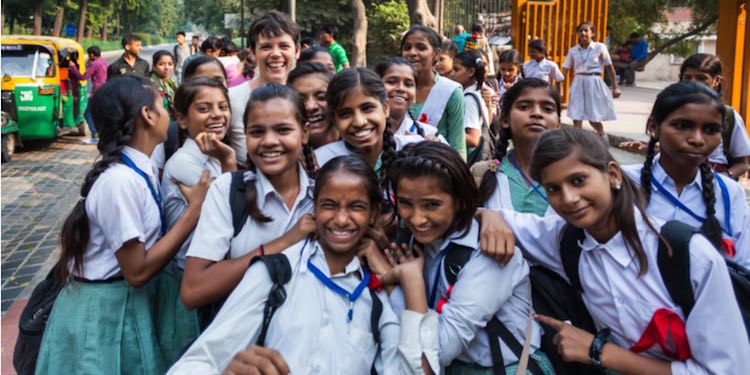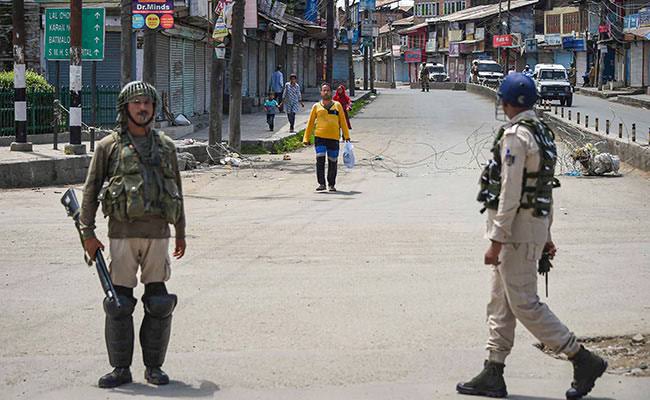SC Cautions Centre On J&K Restrictions, Says Internet Access Is A Fundamental Right

A PHP Error was encountered
Severity: Notice
Message: Trying to access array offset on value of type null
Filename: helpers/article_helper.php
Line Number: 21
Backtrace:
File: /home/gonewsindia/domains/gonewsindia.com/public_html/apps/helpers/article_helper.php
Line: 21
Function: _error_handler
File: /home/gonewsindia/domains/gonewsindia.com/public_html/apps/helpers/article_helper.php
Line: 10
Function: __single
File: /home/gonewsindia/domains/gonewsindia.com/public_html/apps/views/articles-details.php
Line: 76
Function: __construct
File: /home/gonewsindia/domains/gonewsindia.com/public_html/apps/views/default.php
Line: 583
Function: view
File: /home/gonewsindia/domains/gonewsindia.com/public_html/apps/controllers/Home.php
Line: 221
Function: view
File: /home/gonewsindia/domains/gonewsindia.com/public_html/index.php
Line: 293
Function: require_once
"Freedom of speech and expression through the medium of internet is an integral part of Article 19(1)(a) and accordingly, any restriction on the same must be in accordance with Article 19(2) of the Constitution," the Supreme Court said. While the SC noted that the petitioners had not argued to declare access to the internet as a fundamental right, the court ruled that “the right to carry on any trade or business under 19(1)(g), using the medium of internet is constitutionally protected.”
 The top court today also cautioned the Central Government for failing to make public the reasons for restricting the movement and assembly of people under section 144 of the Code of Criminal Procedure (CrPC) in the Kashmir Valley. It has ordered that all material and orders by the administration imposing such restrictions have to be put in public domain so that citizens may challenge these orders in high courts and relevant forums.
“Orders passed under Section 144, CrPC have direct consequences upon the fundamental rights of the public in general. Such a power, if used in a casual and cavalier manner, would result in severe illegality,” the SC noted.
The Centre justified that placing restrictions was necessary to ensure that no violence and external forces (read Pakistan) would spread misinformation using the internet.
While noting the Government’s submission that ‘restrictions have been allegedly removed on 27.09.2019’ the SC noted: "We cannot ignore noncompliance of law by the State. As learned senior counsel Mr Kapil Sibal submitted this case is not just about the past or what has happened in the erstwhile State of Jammu and Kashmir, but also about the future, where this Court has to caution the Government. Hence, we direct that the authorities must follow the principles laid down by this Court and uphold the rule of law.”
Welcoming today's SC order as landmark, Senior advocate Vrinda Grover said: “The Court has held Internet as a fundamental right and reminded the government that wherever any freedom is curtailed by it, including the right to speech, freedom of the press and the internet, it will have to face the constitutional test when fundamental rights are curtailed."
The top court today also cautioned the Central Government for failing to make public the reasons for restricting the movement and assembly of people under section 144 of the Code of Criminal Procedure (CrPC) in the Kashmir Valley. It has ordered that all material and orders by the administration imposing such restrictions have to be put in public domain so that citizens may challenge these orders in high courts and relevant forums.
“Orders passed under Section 144, CrPC have direct consequences upon the fundamental rights of the public in general. Such a power, if used in a casual and cavalier manner, would result in severe illegality,” the SC noted.
The Centre justified that placing restrictions was necessary to ensure that no violence and external forces (read Pakistan) would spread misinformation using the internet.
While noting the Government’s submission that ‘restrictions have been allegedly removed on 27.09.2019’ the SC noted: "We cannot ignore noncompliance of law by the State. As learned senior counsel Mr Kapil Sibal submitted this case is not just about the past or what has happened in the erstwhile State of Jammu and Kashmir, but also about the future, where this Court has to caution the Government. Hence, we direct that the authorities must follow the principles laid down by this Court and uphold the rule of law.”
Welcoming today's SC order as landmark, Senior advocate Vrinda Grover said: “The Court has held Internet as a fundamental right and reminded the government that wherever any freedom is curtailed by it, including the right to speech, freedom of the press and the internet, it will have to face the constitutional test when fundamental rights are curtailed."
Political analyst and petitioner Tehseen Poonawalla told GoNews, “Everything is online from trade to filling school fees. The Modi government has been trying to encourage online usage but the government has snatched this fundamental right by banning the internet. If there are any online threats, the government can block certain sites but blocking access for the entire population is a denial of the fundamental right.”#SupremeCourt directs the Govt to make public all orders banning internet in #Kashmir so citizens may challenge it in courts and says, access to internet is a #fundamentalright under Article 19(1)(a) of the #constitution.@SidharthPandey#KashmirLockdownVerdict #KashmirInternet pic.twitter.com/uRhjEP2v7o
— GoNewsIndia (@GoNews_India) January 10, 2020
While the apex court said that the governments are best-placed to decide when restrictions need to be imposed in view of law and order situation, it directed the authorities to immediately review all orders suspending internet services and revoke those that are not in accordance with the law. It also asked the administration to consider forthwith allowing government websites, localized/limited e-banking facilities, hospitals services and other essential services, in those regions, wherein the internet services are not likely to be restored immediately. The unanimous judgement by Justice NV Ramana, Justice Subhash Reddy and Justice BR Gavai began by quoting the famous lines from ‘Tale of Two Cities’ by Charles Dickens: “It was the best of times, it was the worst of times, it was the age of wisdom, it was the age of foolishness…. ” and just like Dickens who is considered a classic, many are viewing today's judgement as a landmark verdict that will be interpreted and referred to not only for J&K but across India.Petitioner @TehseenPoonawala on #SupremeCourt's verdict on #communicationblanket in #JammuandKashmir says, in the name of national security, not everything can become unreviewable and lauded the SC to declare internet as a #fundamentalright. @SidharthPandey reports pic.twitter.com/4JD4q1yhJV
— GoNewsIndia (@GoNews_India) January 10, 2020
Latest Videos
















